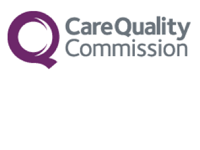
The Care Quality Commission (CQC) ceased inspecting independent learning disability hospitals, such as Winterbourne View, for four months last winter. Figures obtained by Community Care show that no inspections of this type of provision were conducted between 1 October 2010 and 31 January 2011.
The hiatus came only a year after the CQC published a report highlighting poor practice in specialist health services for people with learning disabilities, in which it pledged to regularly monitor providers.
The news follows the BBC’s Panorama exposure of abuse at Winterbourne View, a private hospital for people with learning disabilities and complex needs run by Castlebeck. Following the broadcast, care services minister Paul Burstow ordered CQC to carry out unannounced inspections of a sample of the 132 independent learning disability hospitals in England.
Keith Smith, chief executive of the British Institute of Learning Disabilities, said the “significant reduction in inspections seems wrong”.
“As Panorama showed, people who are being held in a specialist hospital are among the most vulnerable in society and their care and protection should be the top priority for the regulator.”
Beverley Dawkins, national officer for profound and multiple learning disabilities at Mencap, said other services [besides Winterbourne View] that were providing poor quality of service could have “gone unnoticed”.
The cessation of inspections coincided with the introduction of a revised regulatory regime for independent healthcare and adult social care providers on 1 October 2010, under the Health and Social Care Act 2008.
But it also followed a sharp fall in inspections of independent healthcare providers with mental health provision – a wider category that included learning disability hospitals – under the previous regulatory regime. These fell from 13 a month in 2009 to five a month in the period from January to September 2010.
A CQC spokesperson said inspectors had been busy re-registering providers under the new regulatory regime during the period when inspections plummeted. “Inspection activity was at a lower level immediately after [the introduction of the new regime] but is now moving towards what will eventually be the normal level.”
But experts said the fall in inspections showed a lack of awareness of the risks of institutional care for people with learning disabilities. “It’s surprising that there has been a gap given that previous inspections identified that there were compliance issues in some of these hospitals,” said Jim Mansell, emeritus professor of learning disabilities at the University of Kent and an expert on learning disability.
“We seem to have forgotten the lessons of the Cornwall and Sutton and Merton abuse scandals,” said Rob Greig, chief executive of the National Development Team for Inclusion and the government’s national director for learning disabilities from 2001 to 2008.
Findings of institutional abuse at NHS long-stay services for learning disabled people in Cornwall and Sutton and Merton led to two national audits of specialist inpatient health services for people with learning disabilities in 2007 and 2008 to 2009 by the CQC’s predecessors, the Healthcare Commission and the Commission for Social Care Inspection.
CQC’s report of the second audit, published in December 2009, concluded that services were “at best inconsistent and at worst damaging”. It said annual inspections served to keep the pressure on staff to improve quality and pledged to “continuously monitor and check how well providers are meeting the [essential] standards [under the Health and Social Care Act 2008], which include critical areas such as protecting people from abuse, safeguarding vulnerable people, and respecting and involving people who use services”.
However, Greig added: “Pillorying CQC is not the answer. It is part of a regulatory and inspection framework that is not fit for purpose.”
Greig and Mansell said there was not enough focus in the legislation on improving services once they had met essential standards.
Related articlesPanorama: CQC inspection regime slammed following abuse
Care Quality Commission visits drop by 70%
What do you think? Join the debate on CareSpace
Keep up to date with the latest developments in social care. Sign up to our daily and weekly emails


 ‘Dear Sajid Javid: please end the inappropriate detention of autistic people and those with learning disabilities’
‘Dear Sajid Javid: please end the inappropriate detention of autistic people and those with learning disabilities’ Ofsted calls for power to scrutinise children’s home groups
Ofsted calls for power to scrutinise children’s home groups Seven in eight commissioners paying below ‘minimum rate for home care’
Seven in eight commissioners paying below ‘minimum rate for home care’ Children and young people with SEND are ‘valued and prioritised’ in Wiltshire, find inspectors
Children and young people with SEND are ‘valued and prioritised’ in Wiltshire, find inspectors 
 Facebook
Facebook X
X LinkedIn
LinkedIn Instagram
Instagram
Comments are closed.